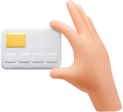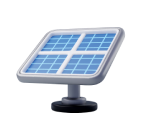IBM's US Patent Filings Plummet by Nearly 60% in Just 2 Years Amidst Shift Towards Open Innovation

Updated Feb 13, 2024
As tech companies embrace the rising tide of artificial intelligence, cloud computing, and other emerging technologies, IBM is failing to meet expectations, with several other companies surpassing it in patent acquisition.
According to Stocklytics.com, IBM’s US patent fillings dwindled by nearly 60% in the last 2 years. The Big Blue’s patent count declined from 8681 patents in 2021 to 3658 in 2023
The site’s financial analyst, Edith Reads, comments:
Cultivating a new culture of open innovation is undeniably important in today’s changing world of technology. IBM’s watsonx platform is built on both patented and open source technologies, showcasing the company’s dedication to innovation while embracing collaborative efforts. However, IBM’s embrace of open innovation has led to the reduction in its patents. This approach should be handled with care to avoid undermining the competitive advantage that the company has worked hard to establish over time. Collaborating with others promotes creativity and speeds up the pace of innovation. However, it is crucial for IBM to find a delicate equilibrium to protect its long-term growth path and preserve value for its shareholders.
Stocklytics Financial Analyst, Edith Reads
The Overall US Patent Statistics
Since the 2019 pandemic, the number of US patent applications has soared significantly, with over 418,000 patents filed in 2023. The notable rise in patent applications hints at the renewed drive among tech corporations to push for new technologies and developments.
However, the grant trend has been on a slump since then, with the all-time high being in 2019, when over 354,000 patents were granted, leaving about 40,000 applications out of the grant equation.
In 2023, only about 312,095 patents were granted. This was a 3.4% decline from 2022’s 322,096, where IBM was pushed off its pedestal for the first time by Samsung, the South Korean electronics giant.
IBM secured about 4,383 patents, while Samsung received 6,248 patents in 2022. In 2023, IBM was significantly displaced and ranked fourth. Once again, Samsung claimed the top spot with 6,165 patents. Joining Samsung in the top three were Qualcomm, with 3854 patents, and TSMC, with 3687 patents. IBM followed closely behind with a marginal gap of 29 patents.
Tech Giants, See Significant Patents Approval
Apple got a considerable number of patents in 2023, about 2536 from 2285 patents in 2022. Google followed with about 1837 patents, a notable improvement from last year’s 1549 patents.
Microsoft and Amazon followed with 1820 and 1591 patents, respectively. The rise of these patents for these tech giants highlights the growing emphasis on generative AI and machine learning. Nvidia acquired about 354 patents in 2023, most of which contributed to the massive demand for its AI chips.
IBM is prioritizing safe and responsible AI. Thus, it formed an AI alliance with Meta at the end of 2023 to bring open-source innovations. Meta and IBM want to bring together leading scientists, universities, developers, and businesses to address real AI concerns. The firms aim to build a platform to share and create solutions that fit the needs of developers, adopters, and researchers globally.

Sign up for our newsletter
Join our exclusive community of over one million investment enthusiasts and receive our free newsletter filled with analysis, news, and updates every weekday.






 All stocks
All stocks
 All Stocks
All Stocks
 52-Week High
52-Week High
 52-Week Low
52-Week Low
 AI Companies
AI Companies
 Big Tech
Big Tech
 Death Cross Stocks
Death Cross Stocks
 Golden Cross Stocks
Golden Cross Stocks
 High Beta
High Beta
 High Dividend
High Dividend
 High Volume
High Volume
 Highest Cash
Highest Cash
 Highest EBITDA
Highest EBITDA
 Highest NET Income
Highest NET Income
 Highest Revenue
Highest Revenue
 Largest Employers
Largest Employers
 Most Expensive
Most Expensive
 Most Volatile
Most Volatile
 Tech Companies 2024
Tech Companies 2024
 All ETFs
All ETFs
 All ETFs
All ETFs
 Energy Sector ETFs
Energy Sector ETFs
 Major World ETFs
Major World ETFs
 Top US ETFs
Top US ETFs
 All Tools
All Tools
 Alerts
Alerts
 Technical Signals
Technical Signals
 Score
Score
 Smart Portfolio
Smart Portfolio
 Candle and Chart Patterns
Candle and Chart Patterns
